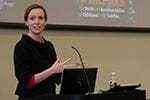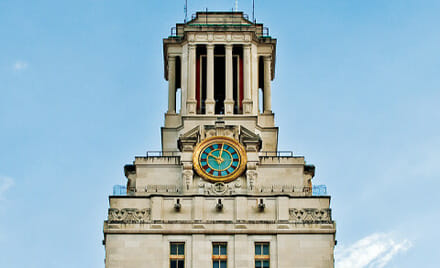Margaret Peacock
University of Alabama
Thursday, October 22, 2015 | 12:30pm | GAR 1.102

They appeared in movies and on milk cartons, in proclamations and protests. In the 1950s and 60s, images of Soviet and American children started showing up everywhere. While advertisers used happy children to sell the promise of affluence, Soviet and American leaders deployed visions of joyous, threatened, and mobilized kids to manufacture approval for the Cold War effort. At the same time, artists and activists around the world conjured the specter of napalmed, abandoned, and segregated children to indict the very state that had sworn to protect them. In the end, no one could control how kids were used or the meanings that they carried.
In Cold War Kids, Margaret Peacock tells the history of the images that defined an era. She shows how Soviet and American propagandists mobilized similar images to similar ends with similar results, despite their ideological differences. Based on extensive research spanning fourteen archives and three countries, Peacock tells a new story of the Cold War. She sees the conflict not as a divide between East and West, but as a struggle between the image makers and the people those images sought to control.
Dr. Margaret Peacock is an Associate Professor of Russian history at the University of Alabama. She received her Ph.D. in History, working under Dr. Joan Neuberger, from the University of Texas in 2009. Dr. Peacock’s work focuses on the history of propaganda, semiotics, and the modern culture industry. Dr. Peacock has published articles on Soviet festivals of the 1950s, Soviet propaganda to Vietnam in the 1960s, and the history of Soviet consumerism in the Cold War. Her first book, Innocent Weapons: The Soviet and American Politics of Childhood in the Cold War, was published by The University of North Carolina Press in 2014. Her new project, The Faults of Power: Propaganda and the Making of the Modern Middle East, explores the relationship between Western propaganda to the Middle East in the 1950s and 60s and the rise of Political Islam in the 1970s and 80s.




